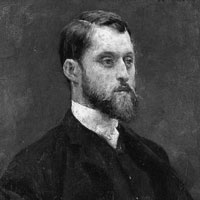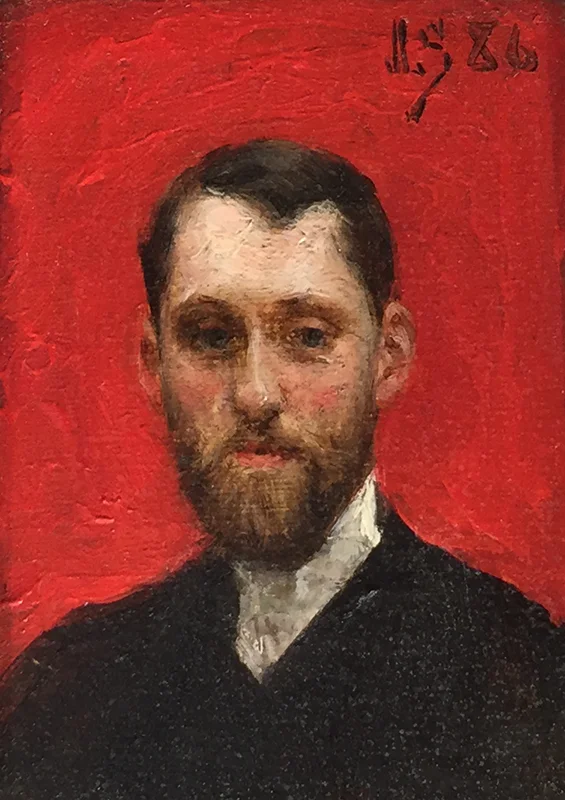JULIUS LEBLANC STEWART PAINTINGS FOR SALE & BIOGRAPHY
JULIUS LEBLANC STEWART
American, 1855–1919
BIOGRAPHY
Julius Stewart was a figure and genre painter from Philadelphia who spent almost his entire life in Paris. From the 1880s through the first decade of the 20th century, he ranked with John Singer Sargent as one of the most popular expatriate American painters in Paris. He was following a genre begun by his friend, Jean Beraud, but Stewart's more vivacious work was considered especially American.
He painted the life he thoroughly enjoyed - Parisian high society. Stewart's works are spirited and realistic, full of fashionable women, sumptuous fabrics and elegant drawing rooms. In addition to portraits of his well-to-do friends, Stewart fullfilled commissions for portraits of society figures and celebrities, among them the actress Sarah Bernhardt.
Stewart was born in 1855, and his family settled in Paris when he was ten years old. His earliest painting is dated 1876. His father, William Stewart, was an outcast art collector, who specialized in works of the contemporary Spanish-Roman school, including Zamacois, Fortuny and de Madrazo. These artists had a great influence on Stewart. In the 1880s, he studied with Zamacois and de Madrazo, as well as with Jean Leon Gerome.
Stewart's first success was being chosen to exhibit at the Paris Salon in 1883. His reputation was firmly established with, The Hunt Ball (1885, Essex Club, Newark) and The Hunt Supper (1889, Buffalo Club, New York) was shown at the Paris Exposition. His high society women portraits show a particular fascination with their evolving roles in a changing society, from the depiction of beauty for beauty's sake to the portrayal of the educated sophisticate. In An Enthralling Novel he succeeds in conveying the reader's concentrated attention to the book, thus portraying her as a well-read woman and not just another pretty face.
At the same time that Stewart was painting high society scenes, he painted nudes out-of-doors, a subject more acceptable in France than in America in the 1890s. By 1905, he had a religious crisis and conversion, toning down his subject matter. At the beginning of World War I, he served in the Red Cross ambulance corps and suffered a nervous breakdown.
Museum Collections:
Pennsylvania Academy of the Fine Arts, Philadelphia, PA
Drexel University Museum, Philadelphia, PA
Wadsworth Atheneum, Hartford, CT
Los Angeles County Museum of Art, Los Angeles, CA
Musée du Château, Compiègne
Detroit Institute of Arts, Detroit, MI
Musée d'Orsay, Paris
Walters Art Museum, Baltimore, Maryland
Mark Murray Fine Paintings is a New York gallery specializing in buying and selling 19th century and early 20th century artwork.
JULIUS LEBLANC STEWART
Paintings for sale
Currently there are no available Julius LeBlanc Stewart paintings for sale at the Mark Murray Gallery.
Please contact us if you are interested in selling your Julius LeBlanc Stewart paintings or other artwork from the 19th century and early 20th century.
Julius LeBlanc Stewart Paintings Previously Sold
JULIUS LEBLANC STEWART
Self Portrait
Oil on panel
3 x 2 inches (7.6 x 5 cm)
SOLD


